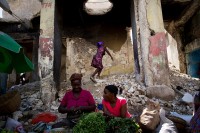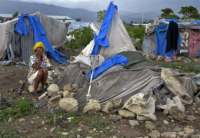Since 2007, Gratz has owned a home in New Orleans, and she was giving me what amounted to a tutorial on her next book subject: the rebuilding of the city post-Katrina. “Look at this,” she said, gesturing to storefronts. “This is one of the longest shopping streets in the country. There are residential and commercial buildings, and local stores and chain stores. Very little was done for streets like this because the big money went to the tourism districts,” she said. “This grew back organically.” Which, she believes, is the way it always happens.
Latest news
- France begins eviction of 650 migrants from Calais camps
- Anti-eviction group creates crowdsourcing map for stories of displacement
- More foreclosures, more middle-aged suicides, study finds
- When it comes to hosting the Olympics, more cities are saying, ‘Hold that thought.’
- European leaders urged to end plight of 600,000 stateless people
Latest from the collection
- Raquel Rolnik’s mandate ends. Leilani Farha is the new rapporteur. – Newsletter #47
- Roots and Branches
- New Materials on Security of Tenure in Several Languages – Newsletter #46
- Guide: Guiding principles on security of tenure for the urban poor
- Address acute housing crisis – Special rapporteur on adequate housing
Learn more



